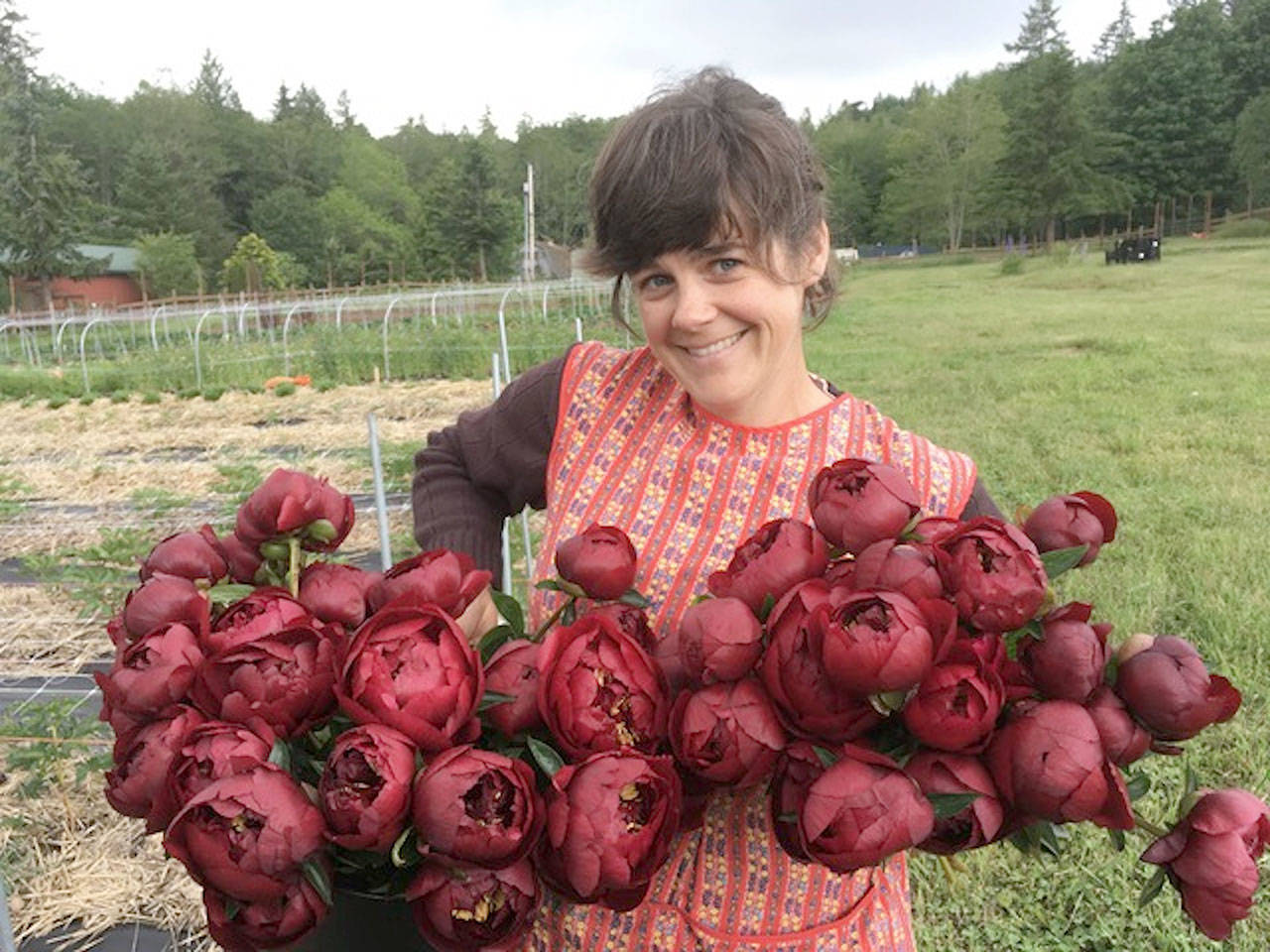I confess I used to spend at least $17 per week on coffee. That Americano put a bright spot in the middle of the work day, so no way was I going to give that up.
Then came March 2020, when, for various reasons, the coffee had to be made at home along with the meals. It’s a little like a black-and-white rerun on TV.
Here in week 57 of the pandemic maxi-series, I’m still saving money, still caffeinating in my own kitchen and, having cooked all manner of new recipes, I’m accepting the fact that there’s nothing new under the sun.
Then: spring. And something new to me — a flower farmshare. An acquaintance tipped me off about Diamond Day Bouquet, Caitlin Carnahan’s love affair with flowers that is also her business.
A longtime Washingtonian, Carnahan is one of several growers offering a community-supported agriculture (CSA) harvest to a small group of subscribers every week, late spring through early fall. Sweet Seed Flower Farm and Lexi Mara Design in Port Townsend also offer flower CSAs, while both Diamond Day and Annie’s Flower Farm in Sequim bring their blooms to the Food Co-op in Port Townsend.
Diamond Day Bouquet’s 16-week CSA subscription costs $240 — forgive me for openly talking money like this — which sounds like a lot of money to spend on something so frivolous. It’s also $15 per week, less than I once invested in those cups of daily joe.
As for these flowers’ power to lift my spirits, well, it’s hard to distill that into words. And Carnahan, local farmer that she is, gently reminded me that imported flowers, showy as they are, bear little resemblance to the locals.
A tulip, a ranunculus, an anemone from the Chimacum Valley is “a really different experience,” Carnahan said.
The scent of local sweet peas, for another example, is a self-care practice all its own, along with a reminder of how beautiful our world is.
Yet flower farming is not for the faint of heart or the tender of knee.
Before those glorious photographs appear on her website, Carnahan contends with mud, frost, rocky soil, more frost and more rocky soil.
She’s put every penny earned back into the farm, along with considerable sweat and muscle.
This year Carnahan has had a breakthrough. She’s hired her first employee, Liz Muller, and will soon be bringing product to the Seattle Wholesale Growers Market Cooperative.
“We just planted 1,500 dahlias,” Carnahan said last Friday.
“It’s been such a long road,” she said. Carnahan was a vegetable farmer on Vashon Island before moving to the North Olympic Peninsula.
It will be tricky to balance the growers market with her CSA and wedding business, which includes what she calls the “DIY bucket,” an assemblage of loose flowers.
With the weekly bouquet, “I really try to just funnel the most special flowers to that group of people,” she said.
As the seasons progress, different varieties appear. Carnahan fervently wants her subscribers to experience it all: fragrance, freshness, color.
Last spring, she saw a vigorous response to the flower CSA idea.
“I’m home a lot; I need something to focus on,” customers told her.
What better thing to focus on but natural beauty nurtured by a local businesswoman?
________
Jefferson County senior reporter Diane Urbani de la Paz can be reached at 360-417-3509 or durbanidelapaz@ peninsuladailynews.com.
Her column runs the first and third Wednesdays of each month; the next one will appear May 5.

